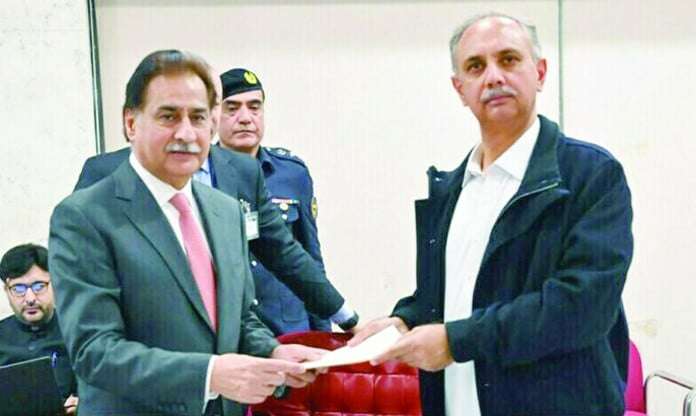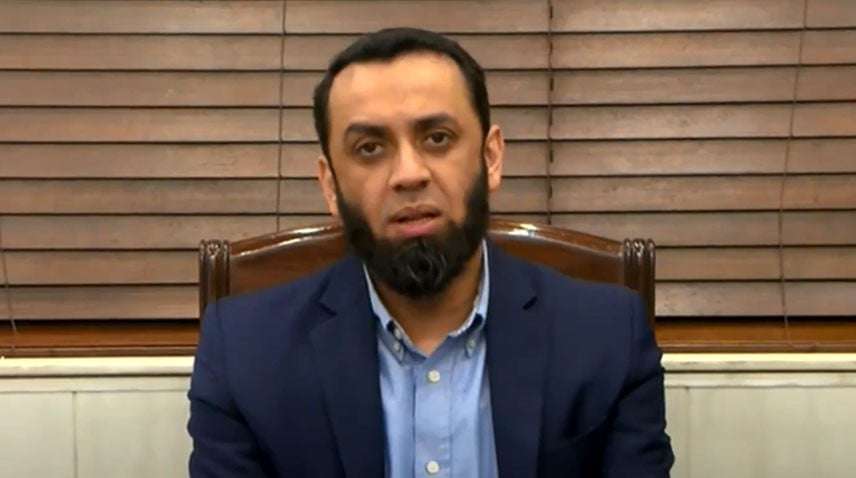Introduction
On Sunday, the long-standing debate surrounding the Societies Registration (Amendment) Act 2024 came to a conclusion as President Asif Ali Zardari finally gave his assent to the controversial bill. This new law, designed to regulate and register madressahs (religious seminaries) in Pakistan, had been mired in controversy and delay for months. After much back and forth, the bill was signed into law, signaling the end of a protracted political and legal dispute over the regulatory framework for religious institutions. The legislation has now become a critical milestone in Pakistan’s regulatory oversight of religious seminaries.
Background: The Madressah Registration Bill
The bill, formally known as the Societies Registration (Amendment) Act 2024, has its origins in the government’s desire to bring greater oversight and regulation to Pakistan’s religious seminaries, also known as madressahs. These institutions have long been a topic of national debate, with concerns over their role in spreading radical ideologies and their lack of formal oversight.
The core objective of the bill is to enforce the registration of madressahs, specifically requiring those that were established before the act’s passage and have not yet been registered to do so within a six-month period. For newly established madressahs, a one-year window for registration has been set. This law mandates that madressahs must submit annual reports detailing their educational activities and audit reports of their financial accounts.
The law further stipulates that madressahs must adhere to guidelines prohibiting the teaching or promotion of sectarianism, militancy, or religious hatred. Additionally, it calls for the inclusion of contemporary subjects in the curricula of these institutions, which will be implemented gradually based on available resources.
The Journey to Presidential Assent
Controversy and Delays
The bill’s passage through parliament was anything but smooth. Political infighting, particularly between government officials and religious parties, delayed its approval for several months. Among the most vocal critics of the law were the leadership of the Jamiat Ulema-i-Islam-Fazl (JUI-F), a religious political party led by Maulana Fazlur Rehman. Rehman accused the government of deliberately stalling the bill’s passage and criticized Prime Minister Shehbaz Sharif for not taking more proactive steps in ensuring its swift passage.
On December 20, Maulana Fazlur Rehman publicly stated that the government was deliberately delaying the bill, and called on Prime Minister Sharif to take immediate steps to resolve the matter. According to Rehman, the JUI-F had expressed its concerns about the law’s potential impact on the religious freedom of madressahs. Despite these challenges, a compromise was eventually reached, and talks were initiated to resolve the dispute.
President Zardari’s Role
Earlier in December, President Zardari voiced his concerns about the law, urging parliamentarians to consider the potential international consequences of altering existing procedures for madressah registration. His reservations centered around the broader implications the legislation could have on Pakistan’s international image, particularly concerning religious freedom.
Despite his initial hesitations, President Zardari ultimately approved the legislation, signing it into law on December 24, 2024. The final version of the bill included various amendments that addressed some of the concerns raised by opposition parties. Following the signing, a gazette was issued by the National Assembly Secretariat, which detailed the requirements for madressahs under the new law.
Key Provisions of the Law
Mandatory Registration for Madressahs
The new law requires that all madressahs in Pakistan, whether founded before or after the bill’s passage, must register with the relevant authorities. Madressahs that were already in existence prior to the bill’s enactment and have not yet registered must do so within six months. New madressahs, on the other hand, must complete their registration within one year of their establishment.
Annual Reporting and Financial Audits
The law mandates that every registered madressah must submit an annual report of its educational activities to the Registrar. This move is aimed at ensuring greater transparency and accountability within these institutions. Additionally, madressahs are required to submit an audit report of their accounts conducted by a qualified auditor. This measure is intended to curb financial irregularities and ensure that funds are used appropriately.
Regulating Content and Curriculum
One of the most significant aspects of the law is its emphasis on regulating the content taught at madressahs. The law clearly states that no madressah shall teach or publish literature that promotes militancy, sectarianism, or religious hatred. Furthermore, madressahs are required, where possible, to include contemporary subjects such as science, mathematics, and languages in their curricula. This is intended to modernize the education system of madressahs and better equip students for the challenges of the 21st century.
Exemption from Other Laws
The new law also ensures that madressahs will not be required to register under any other law currently in force. This provision aims to simplify the regulatory process for these institutions and prevent unnecessary bureaucratic complications.
Impact on the Madressah System
A Step Toward Modernization
The law’s implementation is expected to have a significant impact on Pakistan’s madressah system. By introducing modern subjects into the curriculum, it hopes to broaden the educational scope of these institutions and prepare students for contemporary challenges. Additionally, the focus on transparency through financial audits and annual reporting will likely improve the overall governance of madressahs.
Political and Religious Reactions
Reactions to the law have been mixed. Religious leaders, particularly from the JUI-F, have raised concerns that the law infringes on religious freedom. However, supporters argue that the law is a necessary step in curbing the spread of radical ideologies and ensuring that madressahs align with national and international educational standards. The law’s success will depend largely on its implementation and whether madressahs comply with the new regulations.
Challenges Ahead for the Government
Despite the bill’s passage, several challenges remain for the government. The successful registration and regulation of madressahs will require significant coordination between the government and religious institutions. Moreover, there are concerns about the practical implementation of the law, particularly regarding the inclusion of contemporary subjects and the monitoring of literature used in madressahs.
Another challenge will be the ongoing political resistance from religious groups that see the bill as an infringement on their autonomy. The government will need to strike a delicate balance between enforcing the law and addressing the concerns of these groups to avoid further unrest.
Frequently Asked Questions (FAQs)
1. What is the Societies Registration (Amendment) Act 2024?
The Societies Registration (Amendment) Act 2024 is a law that mandates the registration of madressahs (religious seminaries) in Pakistan. It requires madressahs to submit annual reports, undergo financial audits, and adhere to guidelines prohibiting the promotion of militancy and sectarianism.
2. Why was the bill delayed?
The bill was delayed due to political disagreements, particularly between the government and religious parties. Some religious leaders, notably Maulana Fazlur Rehman, voiced concerns about the bill’s potential impact on religious freedom.
3. What are the key provisions of the law?
The key provisions include mandatory registration of madressahs, submission of annual reports and financial audits, inclusion of contemporary subjects in curricula, and the prohibition of literature promoting militancy and sectarianism.
4. How will this law impact madressahs?
The law aims to modernize the madressah system by incorporating contemporary subjects into the curriculum and ensuring financial transparency. It also seeks to prevent the spread of radical ideologies.
5. What challenges does the government face in implementing this law?
The government faces challenges related to coordination with religious institutions, ensuring compliance with the law, and managing political resistance from religious groups.



